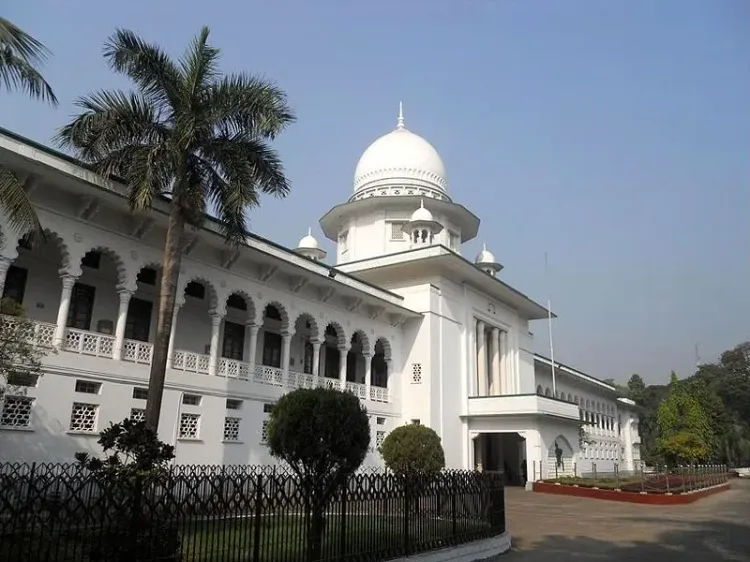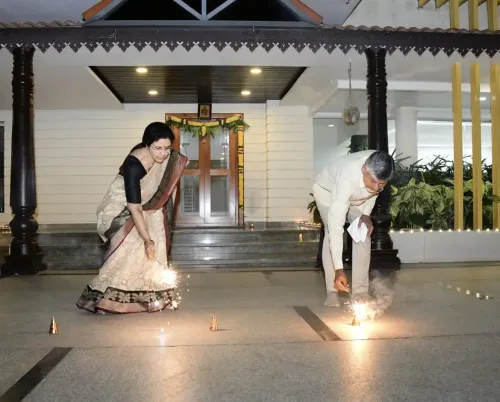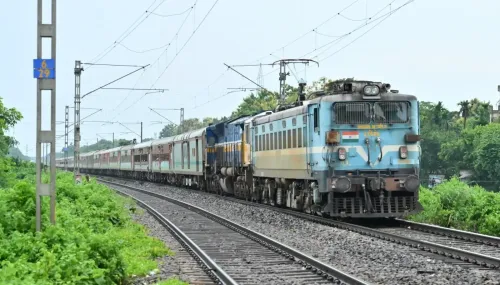Why Did the Awami League Condemn the Bangladesh Court's Ruling on the 2004 Grenade Attack?

Synopsis
Key Takeaways
- Awami League condemns the Supreme Court's ruling on the 2004 grenade attack.
- The ruling absolves 49 accused, raising questions of justice.
- Attack led to the deaths of 24 individuals, with hundreds injured.
- Awami League calls the attack a state-sponsored massacre.
- Implications for the future of democracy in Bangladesh are severe.
Dhaka, Sep 4 (NationPress) The Awami League of Bangladesh expressed its deep disapproval on Thursday regarding the Supreme Court's decision to acquit 49 individuals involved in the horrific grenade attack of 2004, labeling it a terrifying example of impunity.
According to local media reports, the Appellate Division of the Supreme Court affirmed the 2024 High Court's verdict that exonerated all 49 accused, which notably includes Tarique Rahman, the Acting Chairman of the Bangladesh Nationalist Party (BNP), and former state minister Lutfozzaman Babar.
The grenade assault on August 21, 2004, executed during the BNP-led coalition government alongside the radical Islamist party Jamaat-e-Islami, targeted an Awami League rally presided over by Sheikh Hasina, who was then the leader of the opposition, at Bangabandhu Avenue in Dhaka. This tragic event resulted in the deaths of 24 individuals and left numerous others injured.
Criticizing the interim government led by Muhammad Yunus, the Awami League contended that by absolving the culprits of this heinous crime, the Yunus administration has demonstrated its allegiance not to the people of Bangladesh but to “foreign masters”. They claimed that the interim government has effectively buried justice to maintain its blood-stained grip on power, making its eventual downfall unavoidable.
“By exonerating those responsible for such a public massacre, the government is endorsing the politics of murder. One must question: if those who perpetrated an open grenade attack can escape punishment, what does that mean for the safety of ordinary citizens? This ruling reveals that the illegitimate Yunus government and its unlawfully appointed judges are shielding the killers out of gratitude,” read a statement released by the Awami League.
“This verdict is not merely an affront to the Awami League; it is a dreadful conspiracy against the very essence of the Liberation War, democracy, and justice. The nation observes that murderers, extremists, war criminals, and anti-independence elements are once again finding refuge under the auspices of the state,” the statement continued.
Describing it as the most brutal political massacre in the annals of independent Bangladesh, the Awami League asserted that the “state-sponsored” assault resulted in the deaths of 24 party leaders and activists, including women leader Ivy Rahman, with hundreds sustaining injuries. It also noted that the party's President, Hasina, narrowly escaped death during the attack.
“However, history teaches us that no unjust ruling is everlasting. In the court of the people, the killers, their orchestrators, and their protectors will face justice. The citizens of Bengal declare in unison - We do not accept the exoneration of murderers; we demand justice for Yunus,” the party proclaimed.
The Awami League claims that the attack was masterminded by Tarique, son of then Prime Minister and BNP Chairperson Khaleda Zia, along with war criminals and Jamaat leaders like Matiur Rahman Nizami and Ali Ahsan Mohammad Mujahid, former State Minister for Home Affairs Babar, BNP leader and former Deputy Minister Abdus Salam Pintu, militant leader Mufti Hannan, and other anti-Liberation reactionary factions.









